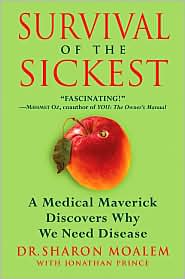Strange Herring Strikes Again
Over at Strange Herring, Anthony Sacramone gives us an hilarious send up of the latest evolutionary idiocy: I knew it! Researchers, looking into obesity, discovered that fatty foods not only send feelings of fullness to the brain but they also trigger a process that consolidates long term memories. It believed that this is an evolutionary tool that enabled our distant ancestors to remember where rich sources of food were located. Now they hope to develop drugs which mimic the effect of fat rich foods in order to boost memory in those suffering from brain disorders or who need to cement facts in their brain. I believe every word of this. BECAUSE IT’S SCIENCE. And if science says a bacon doublecheeseburger Read More ›
